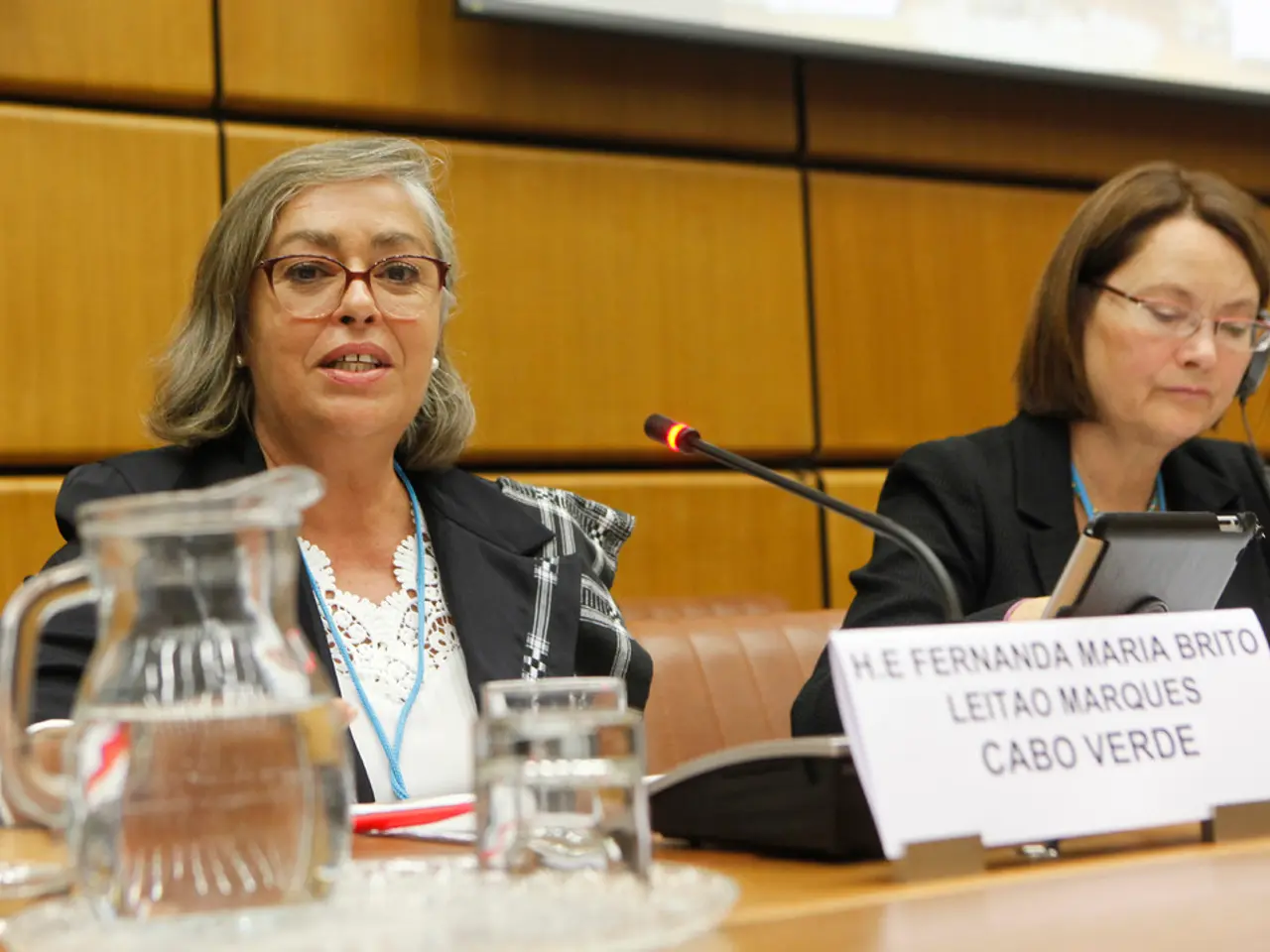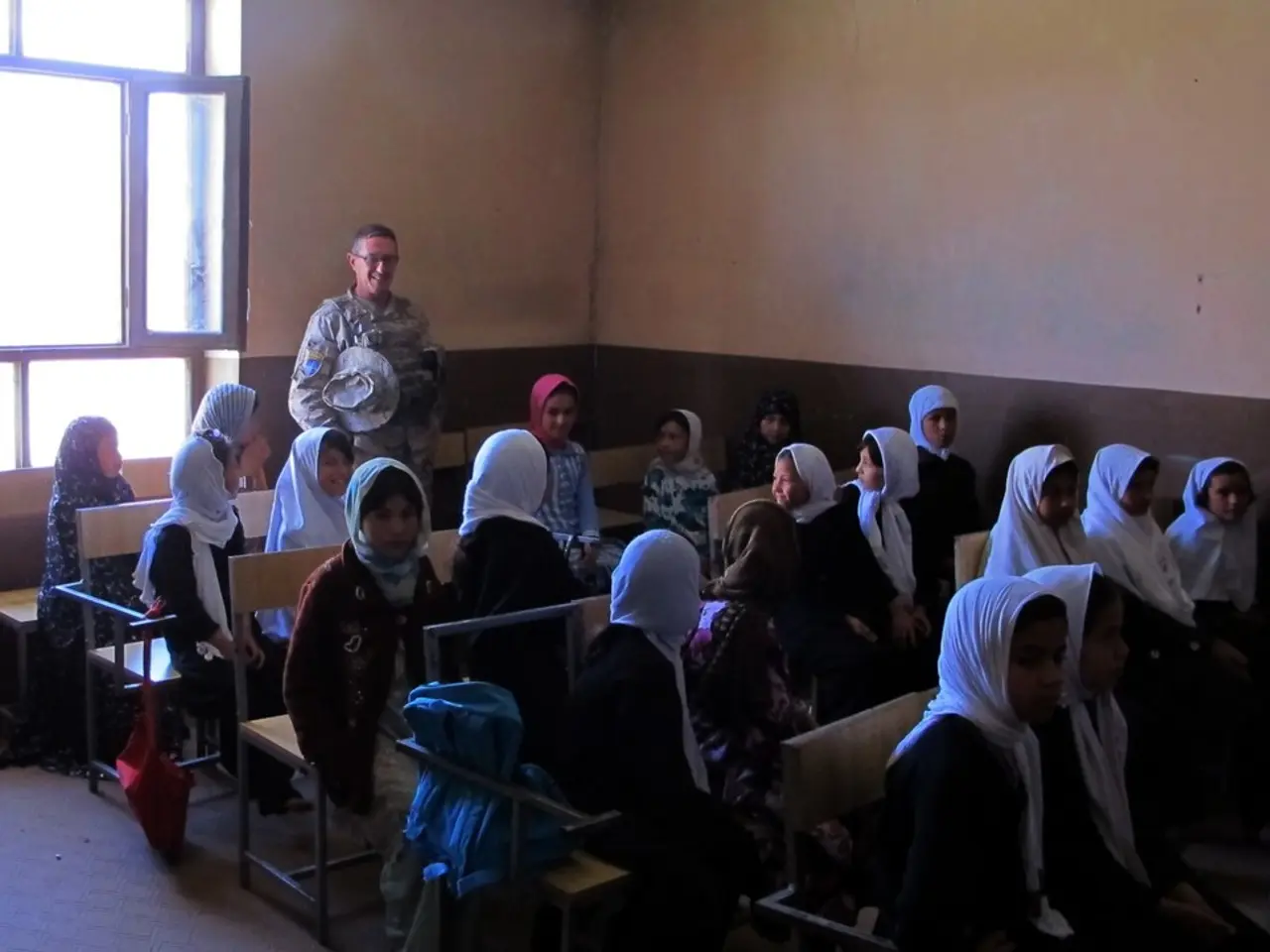A Growing Crisis: Staff Shortages Impacting Childcare Centers in North Rhine-Westphalia
Reduced daycare hours for children due to insufficient staff availability - Reduced duration of childcare in Kitas due to scarcity of personnel.
The childcare centers, or Kitas, across North Rhine-Westphalia (NRW), are currently grappling with a significant obstacle—staff shortages. According to a report by NRW Ministry of Family Affairs, 12,700 staff shortage reports were received by the state youth welfare offices by the end of April, compared to 12,400 the previous year [1].
The start of 2025 saw an escalation in the issue, with 3,360 shortages reported in January compared to 2,900 in January 2024, and 4,380 in February compared to 3,460 the same month last year. This surge is placing immense strain on an already stretched system affected by seasonal illness waves [1].
In most cases, these shortages have led to reductions in care times, with 5,800 instances reported from January through April, and 530 cases resulting in temporary closures of facilities [1].
SPD Calls for State Financial Support
The Social Democratic Party (SPD) has criticized the persistent problem, emphasizing the adverse impact on working parents whose daily routines are disrupted due to closures and reduced offerings [1]. Dennis Maelzer, the SPD's family policy spokesman, advocates for additional financial assistance from the state and ultimately, a reform of the Children’s Education Act [1].
Addressing the Crisis: The KiBiz Reform
The state government is tackling the challenges in the Kitas head-on, primarily by implementing the KiBiz reform (Kinderbildungsgesetz). This comprehensive reform aims to overhaul the structural and funding framework of childcare centers, making early childhood education more viable and attractive to staff [1].
Key components of the KiBiz reform include:
- Changes in funding methods to alleviate financial pressure on Kitas
- Reducing workload and improving working conditions to attract and retain staff
- Regulating care times and staff ratios for enhanced care quality despite shortages
Looking Ahead
Although the KiBiz reform represents a significant step, continuous adjustments and timely funding are necessary to address staffing shortages and ensure consistent care times. The! early stages of the reform indicate a dedication to balancing fiscal realities with the social need for quality childcare in NRW [1].
Recommendations for a Solution
To further improve the situation in Kitas in NRW:
- Implement lower child-to-caregiver ratios to ensure sufficient care time
- Offer better career prospects and ongoing education for Kita staff
- Increase state subsidies to allow hiring more staff and improving infrastructure
- Create more attractive working conditions to reduce turnover
- Streamline administrative requirements to reduce staff workload [1]
- The persistent staff shortages in North Rhine-Westphalia's (NRW) childcare centers, known as Kitas, have resulted in a need for vocational training and career development programs to attract and retain qualified staff.
- The KiBiz reform, a comprehensive overhaul of the childcare system's structural and funding framework in NRW, includes provisions to reduce workload, improve working conditions, and regulate care times to address staff shortage-related challenges.
- To tackle the growing crisis, it is also crucial to focus on personal growth and education-and-self-development opportunities for Kita staff, which could potentially contribute to their long-term commitment to the profession.
- The Westphalian community must acknowledge the importance of addressing staff shortages in childcare centers as it impacts not only the wellbeing of children but also the personal and professional growth of the educators, essential for the smooth waves of learning and development within these facilities.




